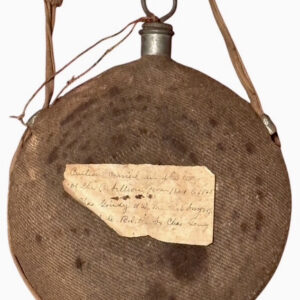ShopFebruary 4, 2026
-
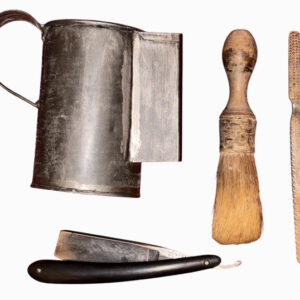
Civil War Period Shaving Items and Toothbrush
$375Civil War Period Shaving Items and ToothbrushFebruary 4, 2026 -
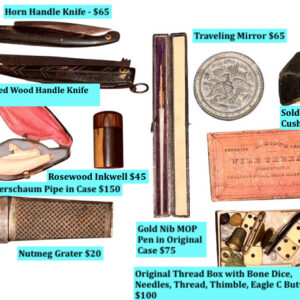
Group of Civil War Period Personal Items
Group of Civil War Period Personal ItemsFebruary 3, 2026 -
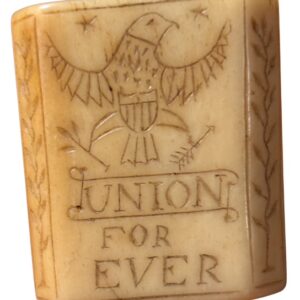
Patriotic Motif Civil War Soldier Carved Bone Cravat or Neckerchief Slide
$350Patriotic Motif Civil War Soldier Carved Bone Cravat or Neckerchief SlideFebruary 2, 2026 -
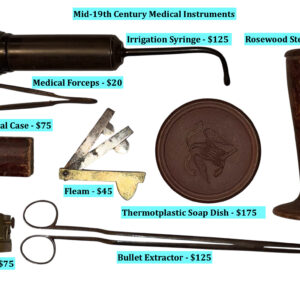
Group of 19th Century, Civil War Period Medical Instruments
Group of 19th Century, Civil War Period Medical InstrumentsFebruary 2, 2026 -
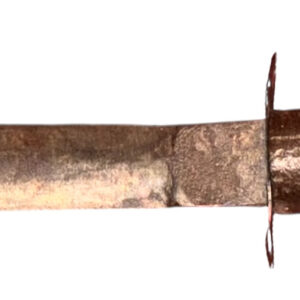
Confederate Side Knife
$650Confederate Side KnifeFebruary 1, 2026 -
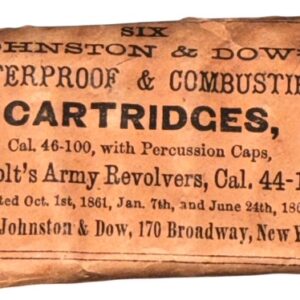
Original Unopened Pack of .44 Caliber Cartridges Made by Johnston & Dow for the M1860 Colt Army Revolver
$425Original Unopened Pack of .44 Caliber Cartridges Made by Johnston & Dow for the M1860 Colt Army RevolverFebruary 1, 2026 -
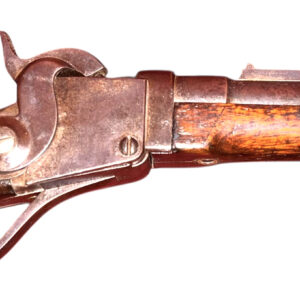
Civil War Period Starr Percussion Carbine
Civil War Period Starr Percussion CarbineJanuary 30, 2026 -
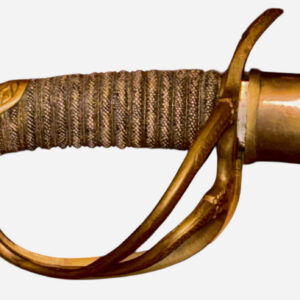
Civil War Model 1840 Cavalry Officer’s Saber
$2,650Civil War Model 1840 Cavalry Officer’s SaberJanuary 28, 2026 -
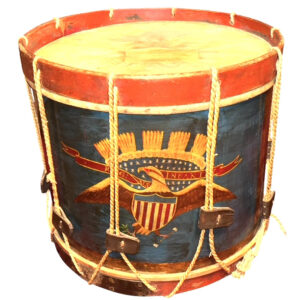
Regulation Civil War Issue Eagle Drum by Contractor George Kilbourn
$5,950Regulation Civil War Issue Eagle Drum by Contractor George KilbournJanuary 27, 2026 -
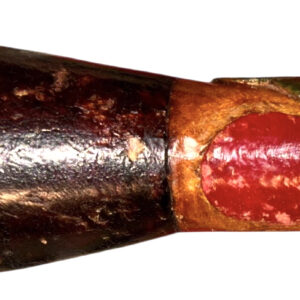
Superior Example of a Civil War Folk Art Polychrome Painted and Relief Carved Cane
$3,150Superior Example of a Civil War Folk Art Polychrome Painted and Relief Carved CaneJanuary 26, 2026 -
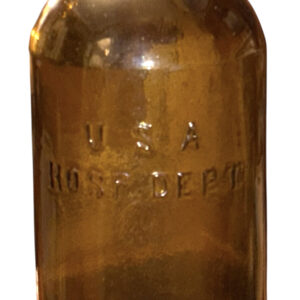
Civil War U.S. Hospital Department Bottle in Rare Apricot Color
Civil War U.S. Hospital Department Bottle in Rare Apricot ColorJanuary 25, 2026 -
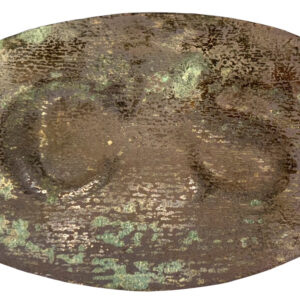
Excavated CS “Egg” Belt Plate
$2,500Excavated CS “Egg” Belt PlateJanuary 24, 2026 -
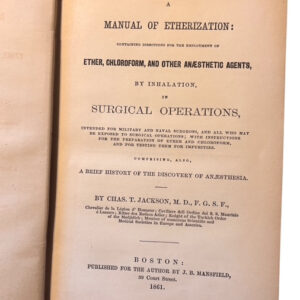
Rare 1st Edition Civil War Medical Book Entitled: A Manual of Etherization : Containing Directions for the Employment of Ether, Chloroform, and Other Anæsthetic Agents, by Inhalation, in Surgical Operations; with Instructions for the Preparation of Ether and Chloroform, and for Testing Them for Impurities. Comprising, also, a Brief History of the Discovery of Anæsthesia – By Charles T. Jackson
$850Rare 1st Edition Civil War Medical Book Entitled: A Manual of Etherization : Containing Directions for the Employment of Ether, Chloroform, and Other Anæsthetic Agents, by Inhalation, in Surgical Operations; with Instructions for the Preparation of Ether and Chloroform, and for Testing Them for Impurities. Comprising, also, a Brief History of the Discovery of Anæsthesia – By Charles T. JacksonJanuary 24, 2026 -
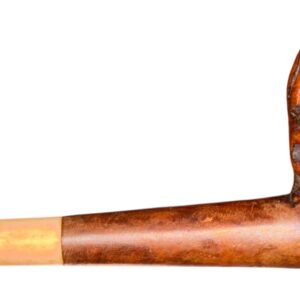
Civil War Pipe Carved by a Soldier in Co. C of the Famed 5th New York Infantry or Duryee’s Zouaves
$1,350Civil War Pipe Carved by a Soldier in Co. C of the Famed 5th New York Infantry or Duryee’s ZouavesJanuary 23, 2026 -
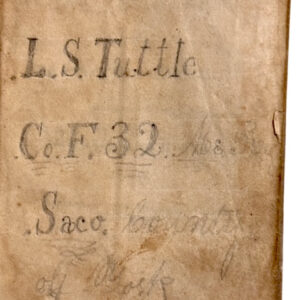
Id’d Civil War Period Pocket Bible – Lewis S. Tuttle Co. F 32nd Maine Infantry – POW and Died at Andersonville
$650Id’d Civil War Period Pocket Bible – Lewis S. Tuttle Co. F 32nd Maine Infantry – POW and Died at AndersonvilleJanuary 22, 2026 -

Pre-War to Civil War Period Cased Surgeon’s Kit by George Tiemann of New York
$3,250Pre-War to Civil War Period Cased Surgeon’s Kit by George Tiemann of New YorkJanuary 22, 2026 -
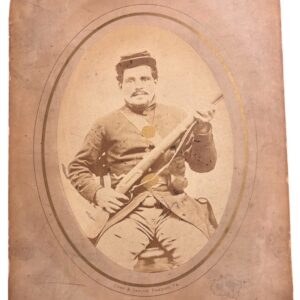
Id’d Albumen of Private John A. Bensing Co. F 87th Illinois Infantry
$275Id’d Albumen of Private John A. Bensing Co. F 87th Illinois InfantryJanuary 18, 2026 -
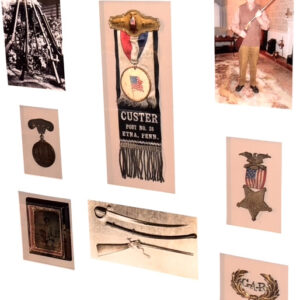
Id’d Grouping Civil War Soldier – Sergeant William Wyble Co. F 5th West Virginia Cavalry
$850Id’d Grouping Civil War Soldier – Sergeant William Wyble Co. F 5th West Virginia CavalryJanuary 18, 2026 -
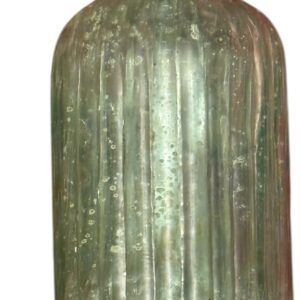
Dug Civil War Officer’s Whiskey Decanter from Union Camp at Brandy Station
$65Dug Civil War Officer’s Whiskey Decanter from Union Camp at Brandy StationJanuary 17, 2026

